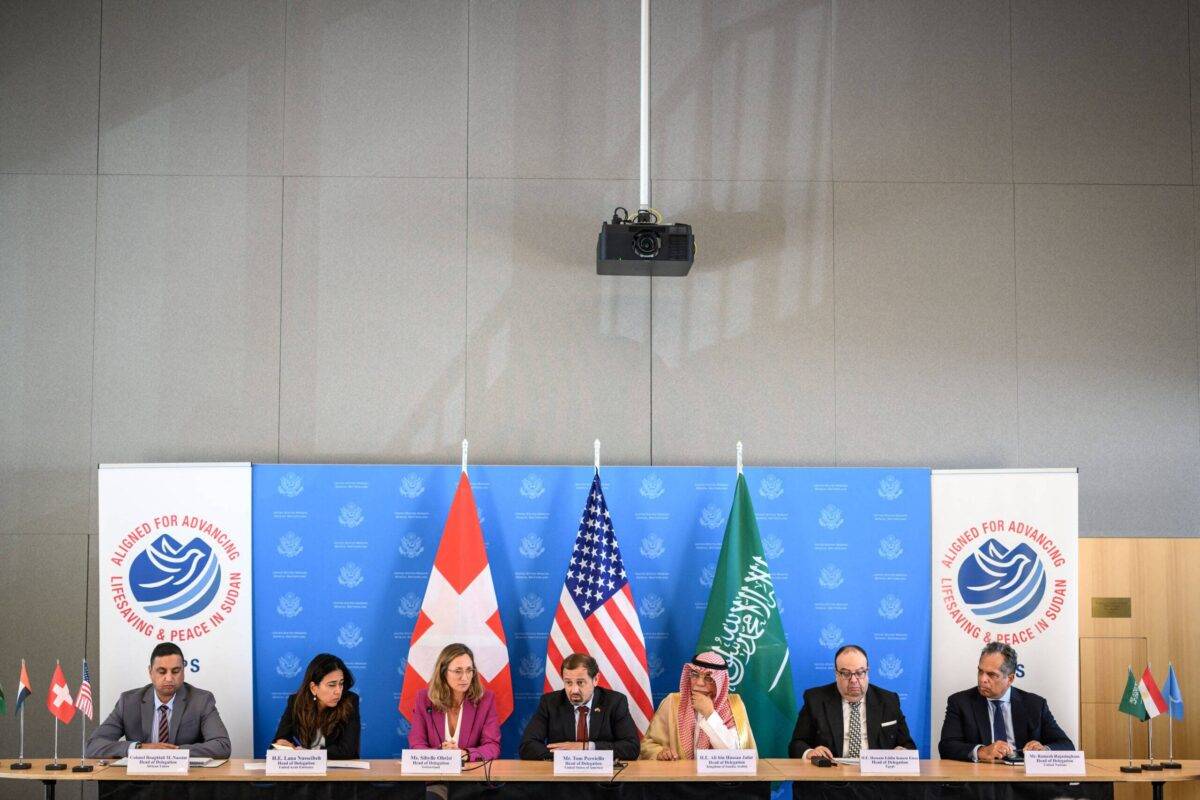
Mediators assert that the army’s failure to attend negotiations regarding Sudan’s conflict has hindered progress
The Sudanese army’s absence from the discussions had impeded progress, according to U.S.-led mediators who stated on Friday that they had secured guarantees from Sudan’s warring parties at talks in Switzerland to improve access for humanitarian assistance.
After 16 months of conflict between the army and Rapid Support Forces (RSF) paramilitaries, a new group of mediators, which included Saudi Arabia, Egypt, and the United Arab Emirates, attempted to negotiate additional aid and protection for civilians who were experiencing famine, mass displacement, and the spread of disease. The talks lasted for 10 days.
The mediators, who identified themselves as the Aligned for Advancing Lifesaving and Peace in Sudan (ALPS) Group, claimed to have obtained assurances that aid would be permitted to travel through the Adre border crossing from Chad into the Darfur region and along the Dabbah Road from Port Sudan on the Red Sea. Progress was also reported in the direction of the establishment of an additional route through the Sennar Junction.
Conversely, they recognized that any advancements were inadequate in comparison to the response required for one of the most severe humanitarian crises in history.
Tom Perriello, the U.S. Sudan envoy, stated at a press conference in Geneva, “We anticipate that this will serve as a catalyst for even more significant progress and advancements in the future.”
“The sad thing is, the crisis in Sudan is so severe that we could do four of these (negotiation rounds) and still be barely scratching the surface of what Sudanese people deserve.”
This week, only a small portion of the aid that was available at Adre was despatched, as the army-aligned government halted all movements after the crossing reopened for the first time in months, serving as an illustration of the obstacles.
Although mediators claimed to be in virtual communication with the army, they were unable to convince the army to dispatch a formal delegation to Switzerland despite intense diplomatic lobbying.
“Though we were in consistent communication with SAF (Sudanese Armed Forces) virtually, we regret their decision not to be present, and we believe that limited our ability to make more substantial progress towards key issues, particularly a national cessation of hostilities,” ALPS stated in a written statement.
According to credible reports from U.N. experts, the army has expressed its opposition to the United Arab Emirates’ participation in the negotiations, which has provided material support to the RSF.
The UAE has disputed that it supplied weapons to the RSF.
In a subsequent interview, Perriello stated that Sudan’s army chief, Abdel Fattah al-Burhan, had expressed an interest in the army’s involvement in the negotiations. However, he went on to describe the “very negative political forces that are kneecapping (him)” without providing any specifics.
The conflict in Sudan commenced in April 2023 when the army and the RSF, who had previously shared authority following a coup, engaged in open warfare due to their competition.
As the international community advocated for a transition to civilian rule, the two factions had been endeavoring to safeguard their immense economic interests and power.
The fighting has not been alleviated, and half of the 50 million population is currently without food, despite the overlapping efforts to achieve a ceasefire, which include talks in Jeddah headed by the U.S. and Saudi Arabia.
“We are of the opinion that the national cessation of hostilities is feasible.” “We are aware that it will necessitate a significant amount of effort,” stated Perriello.
All Categories
Recent Posts
Tags
+13162306000
zoneyetu@yahoo.com



